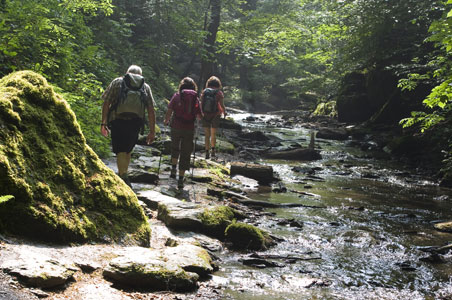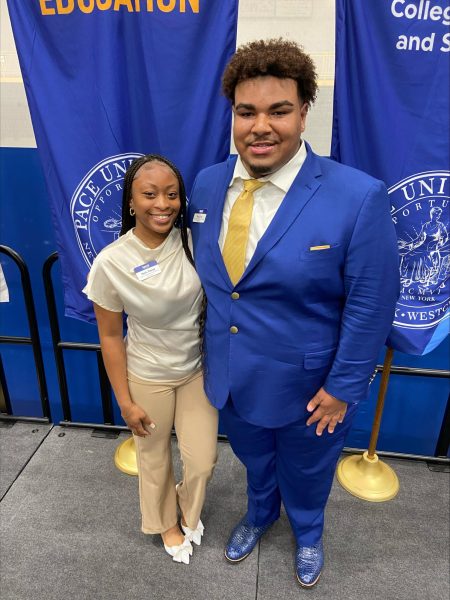Staying Healthy With Outdoor Adventure
May 8, 2014
Exercising, healthy eating, sufficient hydration and wearing sunscreen are all important factors to remember during the summer. More specifically, being physically active and spending time in nature does not have to be a chore or boring and this summer season, there are a multitude of ways to explore outdoor activities and nature.
Physical activity has been proven to reap many health benefits. Regular physical activity helps to improve mental health, mood, strengthen bones and muscles, reduce the risk of cardiovascular disease, type 2 diabetes, metabolic syndrome and some cancers, according to the Center for Disease Control and Prevention (CDC). Exercise can even increase chances of a longer life.
For the next three months, individuals can go hiking, biking, whitewater rafting, take lessons in rock climbing, horseback riding, kayaking or sailing and participate in a variety of other outdoor activities and recreational sports.
“I hate being inside anytime of the year when I run, especially when it’s nice out” said sophomore sports marketing major and cross country team member Sara DiGiovanna, who also talked about local spots near campus, for running and other exercise.
“Along 9A is a bike path that goes on for marathon plus distances, across the street from the Pleasantville campus are walking and jogging trails,” said DiGiovanna, “not even five minutes away is the Rockefeller state park which is actually famous for marathoners and various running groups to do their long runs at. It is so much better than any treadmill run, and it’s awesome if you even wanted to pack a lunch and homework and sit out for the day.”
On the other side of adventure, students can spend time in nature by themselves or with their families. Natural environments have been shown to improve muscle tension, depression and stress among other health issues. Students can garden, visit a national park, plan a camping trip with family or friends, or spend time in a local park playing outside games.
Pace Professor Laurice Nemetz, who teaches Yoga and Pilates, has led yoga and kayaking trips in Costa Rica, Canada and the Hudson Valley. This summer she’s leading a couple of four hour Yoga/Kayak Tours with the Hudson River Expedition.
“Bodies are a lot like kayaks interacting with the water, in that they work to maintain a sense of equilibrium” said Nemetz in “A Place of Balance: Yoga Practice for the Kayaker” an article she wrote in 2010 in Sea Kayaker magazine.
“When we are out of alignment, our body responds with pain and chronic patterns that often predispose us to injury. When alignment is good and balance is neutral, the muscular and connective tissue of the body do not have to work so hard and can function pain free.”
Richard Ryan, a professor at the University of Rochester and his team found that being outside 20 minutes a day was enough to boost vitality. Simply showing study subjects photos of nature or asking them to imagine themselves in nature produced positive effects.
“Often, when we feel depleted, we reach for a cup of coffee,” said Ryan, “but this [study] suggests a better way to get energized is to connect with nature.”
Shinrin-Yokuor forest bathing, is a Japanese practice where people walk throughout a forest to decrease stress and relax.
Whether or not you will be near a forest this summer, bathing in nature in general could allow time to reconnect with your body, self-reflection, meditation, getting away from technology and, depending on the natural setting, recharge the senses.
During the summer, if students happen to find themselves in a stressful situation, a great remedy could be some fresh air.
Students, faculty and staff who are interested in participating in a Yoga/Kayak trip, contact Professor Lauri Nemetz at [email protected].














